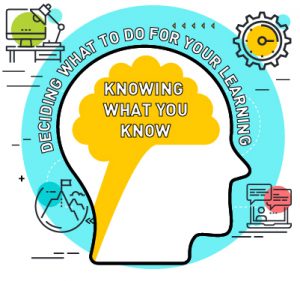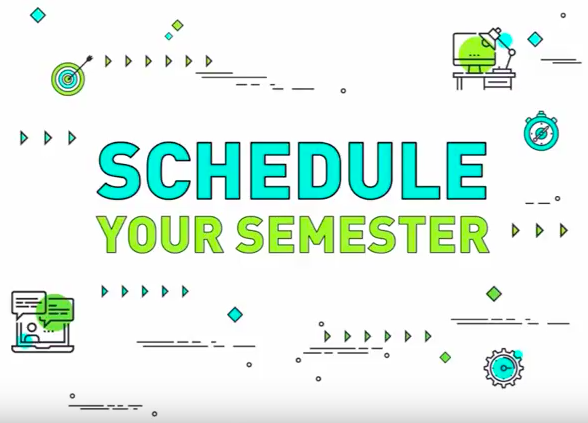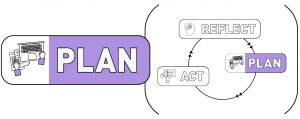Metacognition
Metacognition is thinking about your own thinking and it has two parts:
■ Knowing what you know
■ Deciding what to do for your learning
The next two activities will help you identify what you know and what to do about your learning and how to schedule your time.
At this early stage, you’ll use Activity 12 to identify how well you know the prerequisite knowledge and skills needed to complete the first deadline that you identified for yourself. It will also ask you about your learning strategies and to decide what you will do for your learning.
Let’s check back in with Tracy

Tracy thought that her strategies for preparing for her deadline (an exam) worked really well for her, but she still wasn’t reaching her goals. Previously she had been reading over notes before exams, but she tried out a new strategy – testing herself throughout the semester. She found her performance improved, she could more easily remember the things she needed to know for the exam without cramming, and her grades increased. Don’t be afraid to try new strategies for your own deadline, whatever that may be. Perhaps the way you’ve been approaching this deadline works, but are there better options or methods available you can try out?
Planning your time
Now that you have some strategies in hand, it’s important to make a schedule to help you stay on track. In this video, Shaina explains strategies to schedule your semester.
Watch Shaina schedule her semester.
You can use whatever technology you wish to do this, such as the calendar on your phone, a spreadsheet, software such as Asana, scheduling software, paper (!), etc.
Instead of an in-module activity, take some time to plan NOW and put your schedule somewhere that you’ll see or notice it frequently. This way, you’ll stay on track to reaching your goals for the deadline.
Identify resources needed to achieve your goals

In Activity 13, you’ll identify resources that can help you achieve your goals. The most successful individuals will seek help to achieve their goals.
Metacognition requires you to think about your own thinking and is separated into two parts - knowing what you know and deciding what to do for your learning. This skill is essential for identifying how well you know the prerequisite knowledge, developing study strategies, and learning how to schedule your time.
A particular milestone in your semester or year that you are preparing for. The deadline could be an exam, assignment, competition, etc. The key idea is to identify specific timepoints using these deadlines so that you can check your progress toward your goals.

